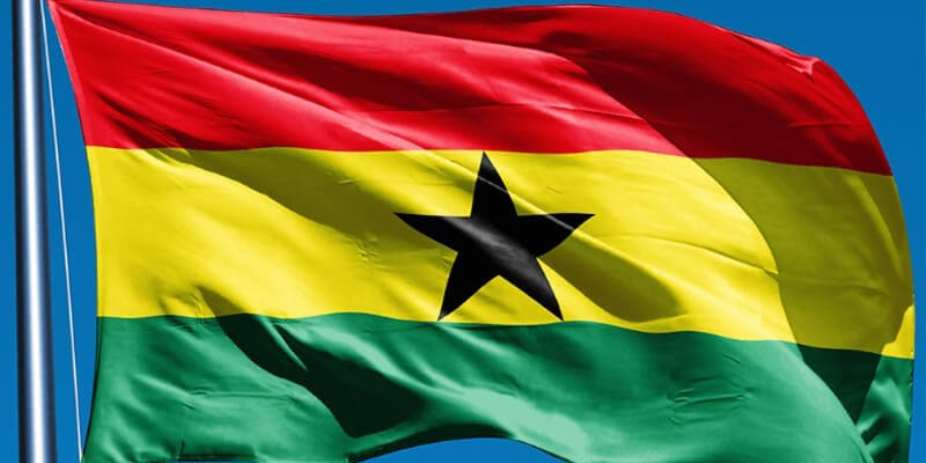Ghana, as a multilingual and multicultural nation, identifies herself with over 60 local languages. These languages are spoken by the majority of the population, although we speak, read and write in English, as the official language. Language has social and cultural uses such as signifying group identity, social stratification and social grooming.
In the same light, people are mostly identified by the language they speak as well the phonics they use. Relatively, in Ghana, there is low production of books in the local languages as compared to English. Hence there is a need to develop and promote the production of books in our indigenous languages, especially for the younger generation or early learners.
In 2008, UNESCO undertook a research to ascertain the role of mother tongue in helping learners to learn faster and actively participate in literacy classes, and whether such an approach can help reduce drop-out rates and increase retention rates. The research recommended the use of the learner’s mother tongue as medium of instruction in the first three years of basic education (early-exit bilingual model). In response, the National Literacy Acceleration Program (NALAP) was introduced in Ghana by the Ministry of Education in September 2009. NALAP was introduced to ensure that children in the early grades (Kindergarten to Primary three) have quality literacy materials, effective instructions, and public support to read and write in their mother tongue and English.
It has been suggested that, there might be some challenges surrounding teaching of the mother tongues or the choice of local languages in the early stage of the basic education, with respect to the area the school is located and the pupils who attend. Notwithstanding this challenge, the production of books in the Ghanaian languages should be encouraged. This calls for a considerable number of stakeholders in the book industry, especially authors, publishers, translators as well as booksellers to come on board to increase the production and distribution of storybooks and textbooks in our local languages. These books could come in bilingual or trilingual versions. It would not be surprising to hear that some of our local languages are phasing out, thereby the tendency of losing some of our cultural heritage as a country.
Just like producing quality books which meet international standards, book production in the local languages is surely not an easy venture. Production of books in the local languages requires a great deal of expertise. The normal chain of book production requires the involvement of authors, publishers, editors, designers/illustrators, printers and booksellers. With the production of books in local languages, a translator could be involved in the book chain. Aside the translator, the services of an editor who is versed in that local language is very essential to the publishing process.
One could also use the services of individuals or private persons who are very good at translating and editing in a particular language. Furthermore, in Ghana, the Bureau of Ghana Languages (BGL) is an entity under the Ministry of Tourism, Art and Culture, with the function of producing and promoting literature in Ghanaian languages. The Bureau of Ghana Languages also serves as a public publishing house for the publication of books in Ghanaian languages, assist authors to improve upon their manuscripts, and translate from English into the Ghanaian languages. Authors and publishers who venture into the production of books in any Ghanaian language should as much as possible conform to the current local orthography by consulting the Bureau of Ghana Languages.
As authors and publishers invest in the production of books in the local languages, citizens must also patronise such publications. Libraries should also designate a section mainly for assorted books produced in the local languages. Books published in our local languages can serve as effective tools for fostering literacy development for a variety of learners in the country. When these books circulate in our market, people would appreciate and value other local languages, cultures and diversity.
In conclusion, it is necessary to emphasise that books serve as a communication channel to target audience, hence the need to sell our culture and ideologies, without compromising quality and standard. Books that are published in our local languages will aid in promoting the Ghanaian cultural heritage and ideas. These books would aid instill in young learners a sense of belonging, and help them value their culture.
Kofi Asante Twumasi
Production Services Manager
Ghana Book Development Council





 SSNIT must be managed without gov’t interference – Austin Gamey
SSNIT must be managed without gov’t interference – Austin Gamey
 Ejisu by-election could go either way between NPP and independent candidate — Gl...
Ejisu by-election could go either way between NPP and independent candidate — Gl...
 We never asked ministers, DCEs to bring NPP apparatchiks for returning officer r...
We never asked ministers, DCEs to bring NPP apparatchiks for returning officer r...
 No one denigrated the commission when you appointed NDC sympathizers during your...
No one denigrated the commission when you appointed NDC sympathizers during your...
 Used cloth dealers protests over delayed Kumasi Central Market project
Used cloth dealers protests over delayed Kumasi Central Market project
 A/R: Kwadaso onion market traders refuse to relocate to new site
A/R: Kwadaso onion market traders refuse to relocate to new site
 Dumsor: Corn mill operators at Kaneshie market face financial crisis
Dumsor: Corn mill operators at Kaneshie market face financial crisis
 Jamestown fishermen seek support over destruction of canoes by Tuesday's heavy d...
Jamestown fishermen seek support over destruction of canoes by Tuesday's heavy d...
 Election 2024: EC to commence voter registration exercise on May 7
Election 2024: EC to commence voter registration exercise on May 7
 Public schools rebranding: We’re switching to blue and white, we’re painting all...
Public schools rebranding: We’re switching to blue and white, we’re painting all...
